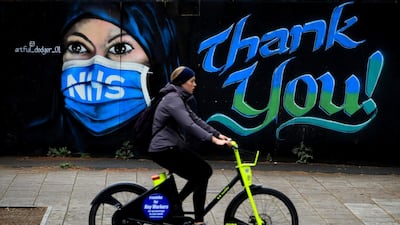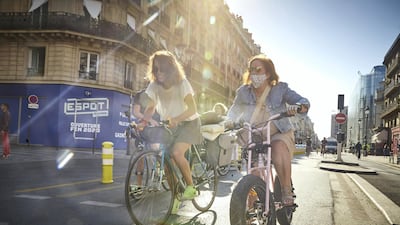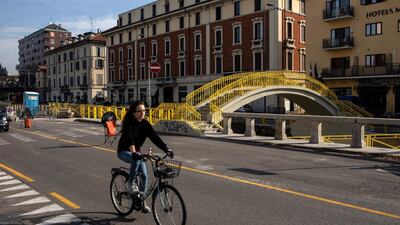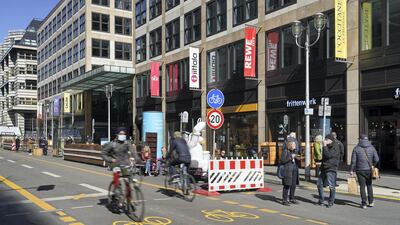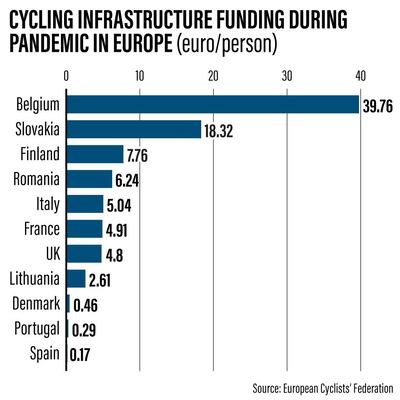European cities want to reduce urban travel, even after the pandemic, to limit their carbon footprints with plans including bans on polluting vehicles and providing local services from kiosks.
Milan wants to create “15-minute cities”, where people can meet most of their needs within a short walk or bike ride from their homes, instead of travelling by car or on public transport.
The Italian city is turning news stands into local service kiosks, where people can collect paperwork and pay taxes or fines, said Chiara Bresciani, an engineer in Milan’s transport department.
A congestion charge system has led to a 40 per cent reduction in traffic in the city.
Ms Bresciani said the plans were about “reconnecting people with their local areas and decentralising city life and services”.
“This vision of the city allows people to safely choose an active mode to reach their destination, which can be services, groceries, retail or co-working spaces,” she said.
“This will help to reduce unnecessary travel across the city to provide more public space, inject life into local high streets, strengthen the sense of community, promote health and well-being and improve city sustainability and liveability.”
Barcelona, meanwhile, is pressing ahead with its “green axes”, which will reroute cars around certain blocks to allow streets to be returned to pedestrians.
“We need to find a way to take advantage of this growth in walking or bicycle mobility within cities,” said Adria Gomila, the director of mobility services at Barcelona's city council.
Mr Gomila was speaking at an online seminar on urban mobility, which was hosted by the Barcelona Centre for International Affairs for April 13 and 14.
“We ought to look at which part of remote activity are we allowed or could we maintain," he said.
“That’s a challenge because the best mobility is no mobility, OK, but activity needs to stay active.
“So we need to see if we can reduce mobility because then we’ll have a great opportunity to make this remote learning, working, running errands – which we’ve all been forced to do.
"What can we keep from that to aid our mobility goals? If we managed to make rush hour not so rushed … how can we make sure that we don’t all go back to all moving [and] needing to move at the same time?”
The seminar also heard that cities accounted for 40 per cent of total road transport in the EU.
Elsewhere, towns and cities in the Netherlands want to monitor low-emission zones by gaining access to police number plate databases and sharing them between European countries.
“Currently we don’t have access to that system, although the system exists in Europe,” said Caspar Sluiter, a European affairs officer at the Netherlands Association of Municipalities.
“Member states can exchange this licence plate registration information but only for traffic violations. We would like to see that extended.”
Mr Sluiter also called for the EU to step in after Dutch authorities banned e-scooters from public roads.
“Scooters in the Netherlands are not allowed at the moment because they think they are unsafe … so I think only Europe can lead the way in that respect,” he said.
In France, Toulouse will ban some vehicles from the city centre by the end of this year, said deputy mayor Jean-Claude Dardelet.
“By the year 2024 only those vehicles that are not polluting – brand new vehicles, electric cars and the new-energy vehicles – will be allowed to access the city,” Mr Dardelet said.
The EU aims to be carbon neutral by 2050, which means a 90 per cent reduction in transport-related greenhouse gas emissions, the Barcelona Centre for International Affairs said.

